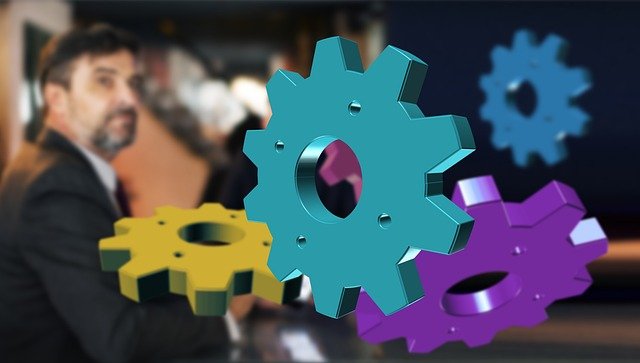Micromentoring: The Career Accelerator You Didn't Know You Needed
In the fast-paced world of professional development, a new trend is gaining traction among career-driven individuals: micromentoring. This innovative approach to guidance and skill-building is revolutionizing how we think about mentorship, offering bite-sized wisdom that fits perfectly into our busy lives. But what exactly is micromentoring, and how can it propel your career forward in ways traditional mentoring can't?

The Genesis of Micromentoring
Micromentoring didn’t emerge overnight. It’s the product of a gradual evolution in the mentorship landscape, driven by changing workplace dynamics and technological advancements. Traditional mentorship, while valuable, often required long-term commitments and face-to-face interactions that didn’t always align with the fast-paced, digital-first nature of modern careers.
The concept began to take shape in the early 2000s as professionals sought more flexible, on-demand guidance. It gained momentum with the rise of social media and professional networking platforms, which made it easier to connect with experts across various fields. The term micromentoring itself was coined to describe these brief, focused interactions that provided targeted advice and support.
Understanding Micromentoring: More Than Just Quick Tips
At its core, micromentoring is about short, focused interactions between mentors and mentees. Unlike traditional mentorship programs that might span months or years, micromentoring sessions are typically brief – lasting anywhere from a few minutes to a couple of hours. But don’t let the short duration fool you; these interactions are designed to be highly impactful.
Micromentoring can take many forms. It might be a quick video call to discuss a specific challenge, a series of text messages exchanging ideas, or even a brief in-person meeting during a conference. The key is that these interactions are purposeful, addressing specific needs or questions rather than general career guidance.
The Benefits of Bite-Sized Wisdom
One of the most significant advantages of micromentoring is its accessibility. In a world where time is often our most precious resource, the ability to gain valuable insights without committing to a long-term mentorship relationship is invaluable. This flexibility makes it easier for both mentors and mentees to engage, increasing the pool of available wisdom.
Micromentoring also allows for a diversity of perspectives. Instead of relying on a single mentor, professionals can tap into a network of experts, each offering unique insights based on their specific experiences and expertise. This variety can be particularly beneficial when navigating complex career decisions or industry-specific challenges.
Implementing Micromentoring in Your Career Strategy
Incorporating micromentoring into your professional development plan requires a shift in mindset. Instead of seeking out a single, all-encompassing mentor, focus on building a network of individuals who can offer guidance in specific areas. Start by identifying your immediate career goals or challenges, then seek out professionals who have expertise in those areas.
Professional networking platforms are excellent resources for finding potential micromentors. Look for individuals who share insightful content or have experience in roles you aspire to. Don’t be afraid to reach out with specific questions or requests for brief conversations. Remember, the key is to be clear about what you’re seeking and respectful of their time.
Maximizing the Impact of Micromentoring Sessions
To get the most out of micromentoring, preparation is key. Before each interaction, clearly define what you hope to gain. Come prepared with specific questions or scenarios you’d like to discuss. This focus ensures that even brief conversations can yield valuable insights.
After each micromentoring session, take time to reflect on what you’ve learned. Consider how you can apply the advice to your current situation. It’s also beneficial to follow up with your micromentor, sharing how their guidance has impacted your work or decisions. This not only shows appreciation but can also lead to ongoing connections and future interactions.
The Future of Career Development: Hybrid Mentoring Models
As micromentoring continues to gain popularity, we’re likely to see a shift towards hybrid mentoring models. These approaches combine the benefits of traditional long-term mentorship with the flexibility and diversity of micromentoring. Organizations may start to incorporate micromentoring platforms into their professional development programs, facilitating connections between employees at different levels and across departments.
The future of mentoring is likely to be more dynamic and personalized than ever before. Artificial intelligence could play a role in matching mentors and mentees based on specific needs and expertise, further enhancing the effectiveness of these brief but powerful interactions.
Embracing Micromentoring for Career Success
In conclusion, micromentoring offers a powerful tool for career development in today’s fast-paced professional world. By embracing this approach, you can gain diverse perspectives, address specific challenges, and continuously grow your skills and knowledge. Whether you’re just starting your career or looking to make a significant change, incorporating micromentoring into your professional development strategy can provide the insights and support you need to thrive.
As you move forward in your career, consider how micromentoring can complement your existing development efforts. By building a network of micromentors and engaging in purposeful, focused interactions, you’ll be well-equipped to navigate the complexities of modern professional life and accelerate your career growth.






